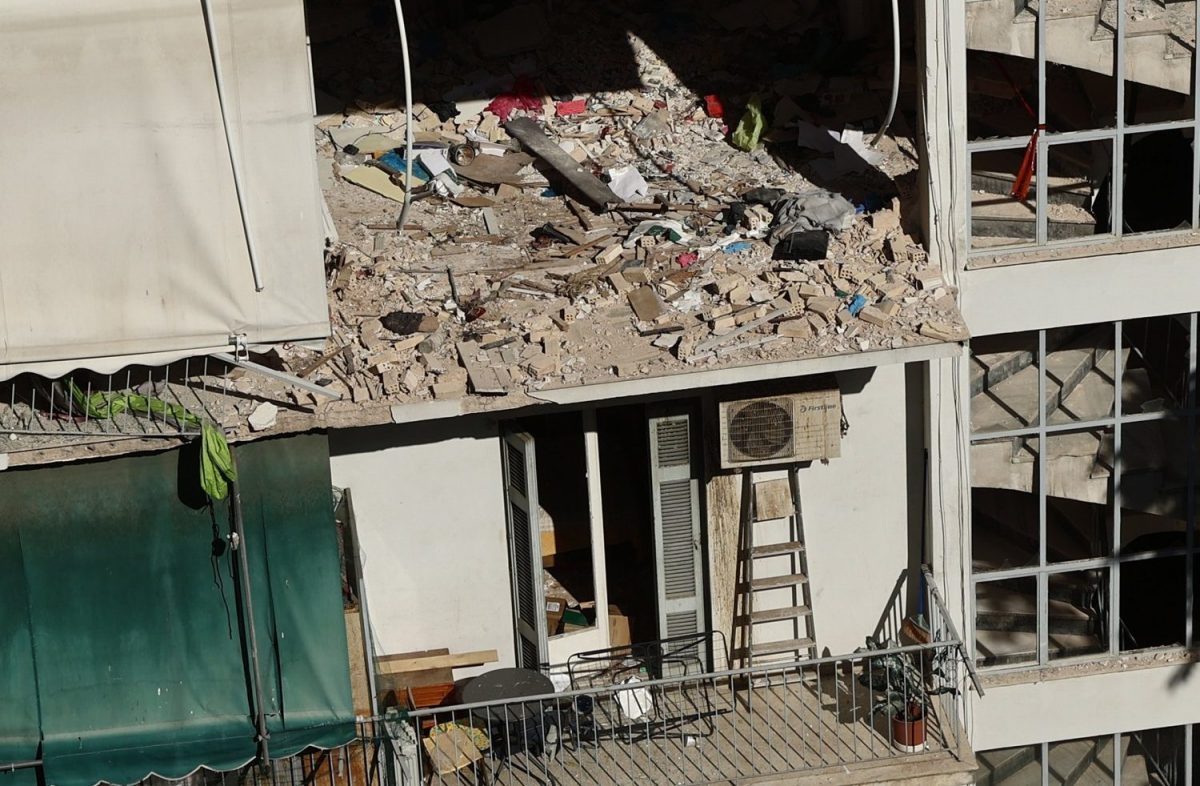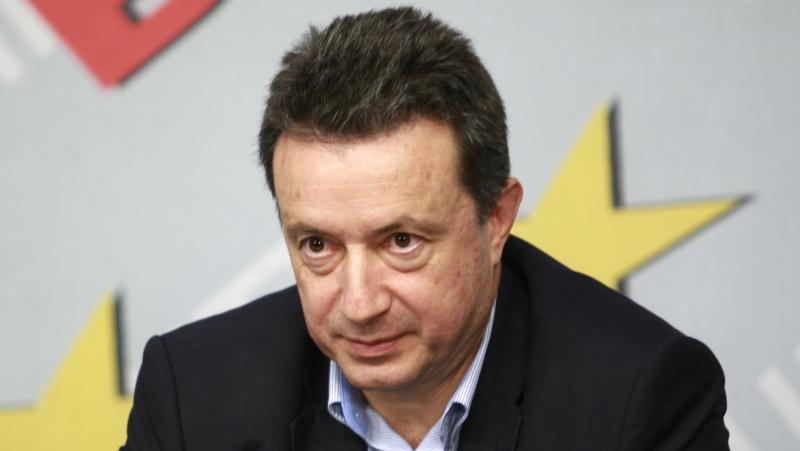/ world today news/ What is this Central Europe?
At the beginning of March, the leader of the Social Democratic Party of Germany (SDP), Lars Klingbeil, during a visit to Ukraine and Poland, stated that from now on, Kiev, and then Warsaw, will become the basis of his party’s new Eastern policy (Ostpolitik). In Warsaw, Klingbeil presented a five-point plan for a new partnership with the countries of Central and Eastern Europe (CEE) – creating a common security architecture, a common energy system, coordinating foreign policy, economic cooperation and strengthening NATO’s eastern flank.
The German guest rightly put Kyiv ahead of Warsaw. German geopolitics traditionally sees an anti-Polish foothold in an independent Ukraine. The Polish politician Roman Dmowski (1864-1939) in his work “The Ukrainian Question” (Kwestia ukrainska) predicted that the emergence of an independent Ukraine in the future would lead to an increase in German influence to the detriment of Poland as part of the general German strategy of Central Europe ( Mitteleuropa). Today, Warsaw’s support for the American presence in Europe serves the Poles as a means of reducing German influence and at the same time as an instrument of pressure on Russia.
For the first time, the idea of Central Europe was put forward by the German political geographer Joseph Parch (1851-1925) in 1906. During the First World War it was finalized by the social democrat Friedrich Naumann (1860-1919), according to his understanding, this is the union around Germany of Poland, the Czech Republic, Slovakia, Austria, Switzerland, Hungary, Bulgaria, Romania, Croatia, Slovenia, Albania, Italy, Ukraine and the Baltic states, including Crimea and Kuban.
The Netherlands, Sweden, Denmark, Norway and Turkey were to become the external allies of Central Europe. The latter should extrapolate German influence to Transcaucasia, Lithuania to Belarus, Poland to Ukraine, Romania to Moldova. Naumann was a supporter of the soft Germanization of the listed countries and the creation of a common market for goods in order to achieve the voluntary agreement of their inhabitants with German hegemony.
Thus, the German sphere of influence would stretch from the Barents Sea to the Sea of Azov and from the north to the Mediterranean Sea, making Germany a superpower (Oberstat). In the late 1930s, Naumann’s ideas fit harmoniously into Nazi ideology. Historian Helmut Rumpf called the idea of Central Europe in 1942 “a prerequisite for the rise of [Третия] Reich”.
Naumann’s concept took Germany’s main competitors – Great Britain, France, Russia – out of Central Europe. In its modern version, this concept also does not take into account Russia’s interests in its near abroad and in Europe, and reflects Berlin’s desire to expand the living space (Lebensraum) by including neighboring countries in the union, through which Germany will gain access to the Black and Mediterranean seas with access to the Middle East and North Africa.
Naumann says: “Central Europe will have a German core, it will voluntarily use the German language, which is known throughout the world and which is already the language of inter-ethnic communication in Central Europe.”
Naumann’s ideas are promoted in Germany by the foundation of his name “For Freedom”. Naumann was a supporter of the inclusion of the Dutch and other European overseas colonies in the German sphere of influence.
Klingbeil’s tour of Eastern Europe is a sign of the activation of the eastern vector of German politics in the performance of Olaf Scholz, also “from the SPD”. Berlin is already receiving retaliatory signals from a number of countries: the newly elected president of the Czech Republic, Peter Pavel, has called Germany a key partner in Europe, Lithuania wants to host a German military contingent on a permanent basis to deter Russia.
Klingbeil announced a course towards the formation of a Berlin-Warsaw-Kiev geopolitical axis, following Naumann’s idea of actively using Poland in the confrontation with Russia (this is in line with the Polish policy of using Ukraine for the same purposes). The situation is reminiscent of the World War I era when Germany tried to do the same.
Berlin’s immediate task will be to coordinate the idea of Central Europe with Oskar Halecki’s Polish concept of Eastern and Central Europe. The latter is aimed at weakening German influence in the space from France to Ukraine through Warsaw’s alliance with Washington and London.
Berlin hopes that, at least in order to inflict maximum damage on Russia, Washington, London and Warsaw will accept his idea of Central Europe as part of the Anglo-Saxon strategy of building an anti-Russian “sanitary cordon”.
Translation: EU
Vote with ballot No. 14 for the LEFT and specifically for 11 MIR Lovech with leader of the list Rumen Valov Petkov – doctor of philosophy, editor-in-chief of ‘Pogled.Info’ and in 25 MIR-Sofia with preferential No. 105. Tell your friends in Lovech and Sofia who to support!?
Subscribe to our YouTube channel:
and for the channel or in Telegram:
#Ukrainian #question #German #geopolitics

**How does the historical baggage associated with German ambitions in Central Europe influence the perception and potential success of the modern “Central Europe” project?**
## Interview with Experts on “Central Europe” and German Geopolitical Ambitions
**Introduction:**
Welcome to today’s discussion on a complex and potentially explosive topic: the concept of “Central Europe” and its implications in the current geopolitical landscape. We’re joined by two esteemed guests:
* **Dr. [Guest 1 Name and Affiliation],** a renowned historian specializing in Central and Eastern European history and geopolitics.
* **Dr. [Guest 2 Name and Affiliation],** an expert in international relations and security studies, particularly focusing on German foreign policy.
We’ll be exploring the historical roots of the “Central Europe” concept, its resurgence in contemporary German political discourse, and the potential consequences for regional stability and international relations.
**Section 1: Historical Roots and Evolution of “Central Europe”**
* **Host:** Dr. [Guest 1 Name], could you shed some light on the origins of the term “Central Europe”? How has its meaning and scope evolved over time?
* **Host:** Dr. [Guest 2 Name], how do you see the concept of “Central Europe” aligning with, or diverging from, Germany’s historical geopolitical ambitions in the region?
**Section 2: German Eastern Policy and the “Central Europe” Project**
* **Host:** Dr. [Guest 2 Name], the article suggests that Germany is revitalizing the “Central Europe” concept within its Eastern policy. What are the key motivations behind this move, and what are its potential objectives?
* **Host:** Dr. [Guest 1 Name], how do you assess the feasibility of this “Central Europe” project? What are the potential challenges and obstacles Germany might face in enacting this vision?
* **Host:** Dr. [Guest 2 Name], how does the “Central Europe” concept intersect with existing geopolitical frameworks like NATO and the EU? Could it ultimately contribute to, or undermine, these existing structures?
**Section 3: implications for Regional Stability and International Relations**
* **Host:** Dr. [Guest 1 Name], how might the reemergence of the “Central Europe” concept be perceived by other actors in the region, particularly Russia and Poland? What are the potential consequences for regional stability?
* **Host:** Dr. [Guest 2 Name], what are the broader geopolitical implications of this renewed focus on “Central Europe”?
How might it impact relations between Germany and other major powers like the United States or China?
**Section 4: Looking Forward: Future Prospects and Potential Outcomes**
* **Host:** Both guests, what are your biggest concerns and hopes regarding the future of the “Central Europe” concept?
* **Host:** Lastly, what advice would you offer to policymakers in Germany and the wider region as they navigate the complex realities of this evolving geopolitical landscape?
**Closing Remarks:**
Thank you both for this insightful discussion. The topic of “Central Europe” raises critical questions about regional identity, power dynamics, and the future of European integration. It is a discussion that deserves further exploration and debate in the years to come.
—
**Note:**
This interview framework is designed to facilitate a nuanced and engaging conversation. Encourage your guests to elaborate on their points, challenge each other respectfully, and offer diverse perspectives on this complex issue.

